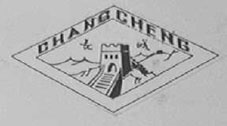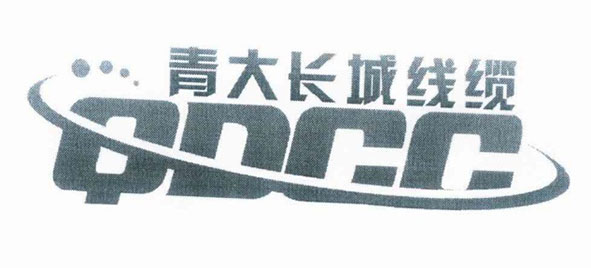Selected Chinese Trademark Administrative
Review Cases in 2016
In China, when receiving a rejection decision over an application for trademark related matters from the Trademark Office (“Office”), or the trademark examination agency, the concerned applicant is eligible for an administrative review, which serves as an internal reexamination mechanism over the quality and legality of a decision made by the Office. The rejection decision is to be reviewed by the Trademark Review and Adjudication Board (“TRAB”), a re-examination authority being parallel with the Office under the umbrella of the State Administration for Industry and Commerce (“SAIC”).
In mid-June, SAIC announced selected cases for trademark administrative review of the year which were finalized within the past year. The following are some of those cases, for the attention of interested parties or prospective Chinese trademark owners, as well as international trademark practitioners.
Entitlement to Apply for Trademark Registration
Xiamen Representative Office of Korea POSE Beauty Group filed applications for registering two “posekin” trademarks. As an evidentiary document supporting its eligibility of entitlement, the applicant submitted a “Registration Certificate of Resident Representative Offices of Foreign Enterprise.” The Office however rejected the application on a procedural ground that the application formalities were not complete. The applicant brought the rejection to the TRAB seeking administrative review.
There were two factors for the TRAB to investigate before deciding to admit the applicant’s eligibility for filling a trademark application. Article 4 of the P.R.C. Trademark Law specifically requires that an eligible entity to apply for trademark registration is either a natural or legal person or otherwise an organization other than the two. In addition, an eligible entity is one which engages in production activities or business operations. (*Article 4 prescribes: “Any natural person, legal person or other organization that needs to obtain the exclusive right to use a trademark for its goods or services during production and business operations shall apply for trademark registration with the Trademark Office.”)
Pursuant to related regulations1 , a representative office is a foreign enterprise’s overseas agency established within the territory of China that functions in non-profit activities associated with the business of said enterprise. Thus, a representative office does not have the status of a legal person. Besides, as an eligible “organization” for the sole purpose applying for trademark registration, it has to be one which possesses certain structural institutions and properties but fails to be a legal person such as, according to the Supreme People’s Court’s interpretation, a licensed private partnership or solo-invested business, a licensed Chinese-foreign cooperative business or a foreign-invested enterprise, a licensed branch institute of a legal entity, etc. By nature, a representative office is not any one of those mentioned. Furthermore, related regulations provide that, without a valid and binding international treaty or covenant agreed to the otherwise, a foreign enterprise’s representative office within China can only function in matters of market survey, public display, promotional events, liaison activity etc., rather than any activities of production or business operation.
In conclusion, a representative office of a foreign enterprise is not a legal person or organization recognized under the Trademark Law, nor shall it engage in any production activities or business operations under related regulations, the TRAB affirms Office’s rejection decision and ruled that the applicant is not eligible for filing a trademark application.
Standing to Initiate Administrative Review
Qingdao Changcheng Electric Power Engineering Mating Company Ltd. (“invalidating party”) as the current assignee on record owns registered word mark CHANGCHENG in an associated logo (No.280192; the “invalidating mark”) which was transferred from numerous past owners. The mark’s registration is traceable back to 1986 and ever since the brand Changcheng, literally means “the Great Wall,” has enjoyed reputation among the relevant domestic consumers who recognize the trademark Changcheng and its represented electric cable and related power utility products for years.
Qingdao Changcheng Julong Cable company (“Applicant”) registered in 2012 a stylized trademark having combination of words and its English abbreviation (No. 9558863; the “invalidated mark”) for electric cable, wires, magnetic cable, insulation copper wire, etc. Alleging similarity of the two registered marks, the invalidating party filed for an invalidation action at the TRAB seeking to cancel the invalidated mark. Having successfully convinced the TRAB, the registration of the invalidated mark was therefore cancelled.
As a counter measure, the Applicant strategically sought to challenge the invalidating party’s eligibility to initiate the action. The Applicant petitioned for an administrative review with the SAIC in hope of revoking the Office’s approval decision made in 2006 on assignment of the invalidating mark to the invalidating party. Nevertheless, a demonstration of a legitimate interest at stake regarding an Office’s decision is a prerequisite to have a standing initiating the review. The Applicant contended mainly that it has such interest because the decision, allegedly made out of defective supporting documents, eventually barred the invalidated mark from registration.
The TRAB dismissed the Applicant’s petition on the grounds that it was not an interested party to the decision on the assignment.
Firstly, by having an “interest,” it means that an eligible petitioner shall be one who is directly, rather than merely collaterally, harmed by a specific administrative decision. The Office’s decision in 2006 was by nature a constructive notice of a bilateral agreement made under the civil law, which is irrelevant to the Applicant. The decision did not generate any direct connection to the rights of the invalidated mark.
Secondly, any actionable interest at stake may only occur between the specific administrative decision and the trademark at issue. If any registrants of later trademark registrations that are similar to the trademark at issue can be deemed as an interested party, the scope of interested parties may become frivolously indefinite. The authoritativeness and stability of the said specific administrative decision will thus be materially compromised. Viewing the present case, if leniently recognizing the Applicant’s eligibility as a party of interest at stake, it is no less than suggesting the possibility of many unpredictable petitions for administrative review is however permissible. The administrative decision on assignment made 10 years ago is thus subject to a dangerously unstable state owning to such a random petition.
Lastly, whether there is an actionable interest shall be determined at the time when the specific administrative decision was made. It is at stake if the petitioner’s legitimate right, either existing or to be foreseen, is harmed due to the specific administrative decision. Again in the present case, the assignment of the invalidating mark and its associated administrative decision had both taken place in 2006, many years earlier than the registration and cancellation of the invalidated mark. At the very moment the decision upon assignment was made, the Applicant’s alleged legitimate right over the invalidated mark was neither existing nor foreseeable. Hence, the Applicant has no interest regarding the Office’s decision on prior trademark assignment.
As a result concluding the foregoing analysis, after showing no interests at stake, the Applicant failed to have a standing initiating an administrative review. The Applicant appealed the TRAB’s dismissal to the Beijing IP Court, which concurred with the TRAB’s finding and affirmed the dismissal.

Reg. No. 280192; invalidating mark

Reg. No. 9558863; Invalidated mark
Evidence Submission during Opposition Period Should be Admitted
An interested party may file for an opposition against a preliminarily approved trademark within a three-month publication timeframe before its registration, prescribed in §33 of Trademark Law. The Office published in official gazette a word mark of registration No. 16140960 whose statutory timeframe open for opposition was from December 14, 2015, to March 13, 2016. In January 2016, an alleged prior user of the work mark (“Petitioner”) challenged by opposing the registration, and had some required forms and documents submitted. After examining the formality, however, the Office deemed that the submission was insufficient to prove the Petitioner’s eligibility to oppose and thus dismissed the opposition petition on the grounds of formality non-compliance. The dismissal was made before the closing day of opposition.
On March 10, 2016, three days before the close of the opposition timeframe, the Petitioner supplemented more supporting evidence including brand briefings, packages, copies of receipts, pamphlets, website snapshots, media coverage, and awards and recognition, all for products which were sold bearing the same word marks. However, the Office did not consider the supplementary evidence.
The Petitioner requested administrative review by TRAB as an effort to revoke the Office’s dismissal decision. The Petitioner argued that the Office’s dismissal was procedurally illegal by failing to admit all evidence submitted within the three-month timeframe, which substantively injured the Petitioner’s interests and rights.
The TRAB reviewed the case and eventually revoked the Office’s decision, in favor of the Petitioner. The TRAB found that, to facilitate the efficiency of a pending opposition proceeding, often times the Office examines a case and then renders a decision based only on the materials and evidence submitted first-time along with the petition per se. Subsequent to issuing a dismissal decision, whether the later supplemented evidence submitted within the opposition period is admissible to the Office depends on whether or not the evidence would serve any material weight to the examination conclusion, as the TRAB further reasoned. Hence, in cases where during preliminary examination the supplementary evidence is found beneficial to completing the procedural requirements of an opposition action, it should be admitted and considered. On the contrary, if the supplementary evidence submitted after the dismissal of the case is still deemed failing to complete formality requirement, the dismissal decision previously made remains in force because the opposing party is not injured substantively even when procedural defects do exist.
The TRAB therefore concluded that, by submitting evidence able to complete procedural requirements, regardless coming along with the petition itself or later being supplementary, the Office shall admit and consider the same so long as the submission is within the three-month statutory timeframe. In the present case the Office should render its acceptance or dismissal decision after the end of opposition period so as to sufficiently safeguard the Petitioner’s procedural interests and substantive rights.

Reg. No. 16140960
for any questions relating to this topic, please contact us at cjchen@tsailee.com.tw
|